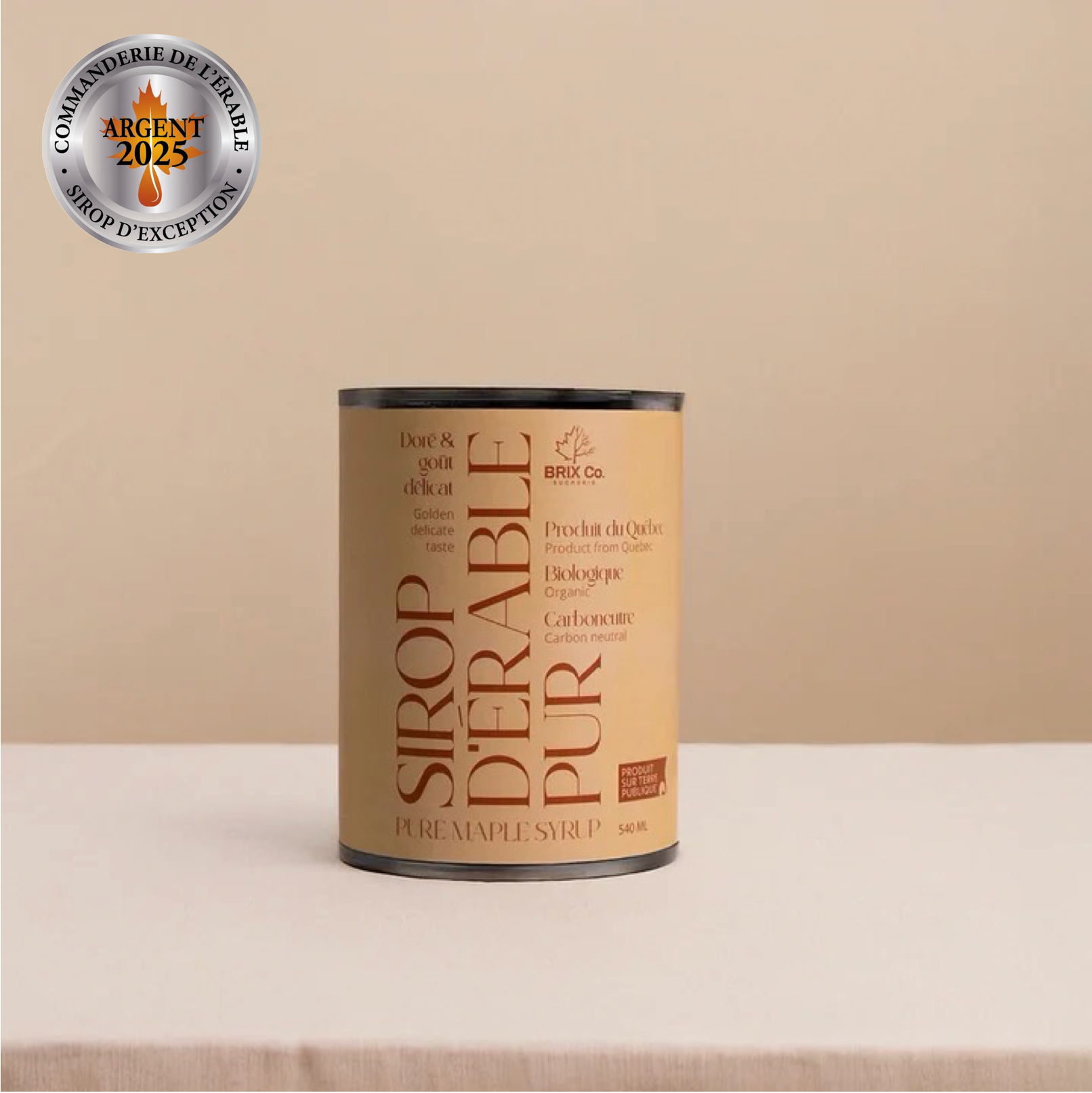Organic Maple Syrup: A Natural Sweetness Par Excellence
Maple syrup is a true wonder of nature, a liquid sweetness that has delighted our palates for centuries. Harvested primarily in Canada, but also in certain regions of the United States, it is the fruit of ancestral know-how. The shift toward organic production of this golden nectar is a testament to producers' commitment to preserving the purity and quality of this resource.
Origin and Tradition
The history of maple syrup is deeply rooted in the traditions of the Indigenous peoples of North America. They discovered that maple sap, when heated, transformed into a sweet liquid. Harvesting and production techniques have evolved over time, but the essence of this product remains unchanged.
Organic Maple Syrup: A Nature-Friendly Choice
The transition to organic farming is a step that responds to growing consumer demand for natural, pure, and environmentally friendly products. Certified organic maple syrup guarantees that the trees have not been exposed to pesticides, herbicides, or other chemicals. Furthermore, forest management must respect biodiversity and ecological balance.
Organic producers place the utmost importance on the health of their maple groves. They adopt harvesting methods that ensure the sustainability of their trees, avoiding overexploitation. They also favor production techniques that preserve all the nutritional and flavor qualities of the syrup.
Abundant Benefits
Maple syrup isn't just delicious, it's also nutritious. Rich in antioxidants, minerals, and vitamins, it's a great alternative to refined sugars. Unlike some artificial sweeteners, organic maple syrup is a 100% natural product, with no additives or preservatives.
Challenges and Perspectives
Organic maple syrup production is not without its challenges. Producers must adapt to the vagaries of nature, particularly climate variations that can influence the length and quality of the maple syrup season. Furthermore, organic certification requires rigorous monitoring, regular inspections, and a consistent commitment to environmentally friendly practices.
However, the outlook for the future is promising. Demand for organic products continues to grow, and maple syrup, with its rich history and incomparable flavor, has everything it takes to appeal to a clientele increasingly concerned about their health and the environmental impact of their consumption.
Conclusion
Organic maple syrup is more than just a sweet treat. It reflects the harmony between man and nature, and a desire to consume responsibly and ethically. By choosing this golden nectar, we are choosing to support environmentally friendly agriculture while enjoying an authentic and rich flavor. A drop of organic maple syrup is an immersion into the maple forests, a taste journey that recalls the beauty and richness of our planet.
References
- Murphey, M. (2016). The Maple and its Sweet Gold: Natural and Cultural History of Maple Syrup . Éditions de l'Homme.
- Agriculture and Agri-Food Canada. (2020). The maple syrup market in Canada . Government of Canada.
- Larivière, I., & Nadeau, P. (2018). Ecology and sustainable management of maple groves . Presses de l’Université du Québec.
- Dupont, D., & Joyal, M. (2019). The Nutritional Benefits of Maple Syrup: Myth or Reality?. Nutrition Today, 34(2), 56-63.
- Federation of Quebec Maple Syrup Producers. (2021). Organic Maple Syrup Production Guide . FPAQ.



